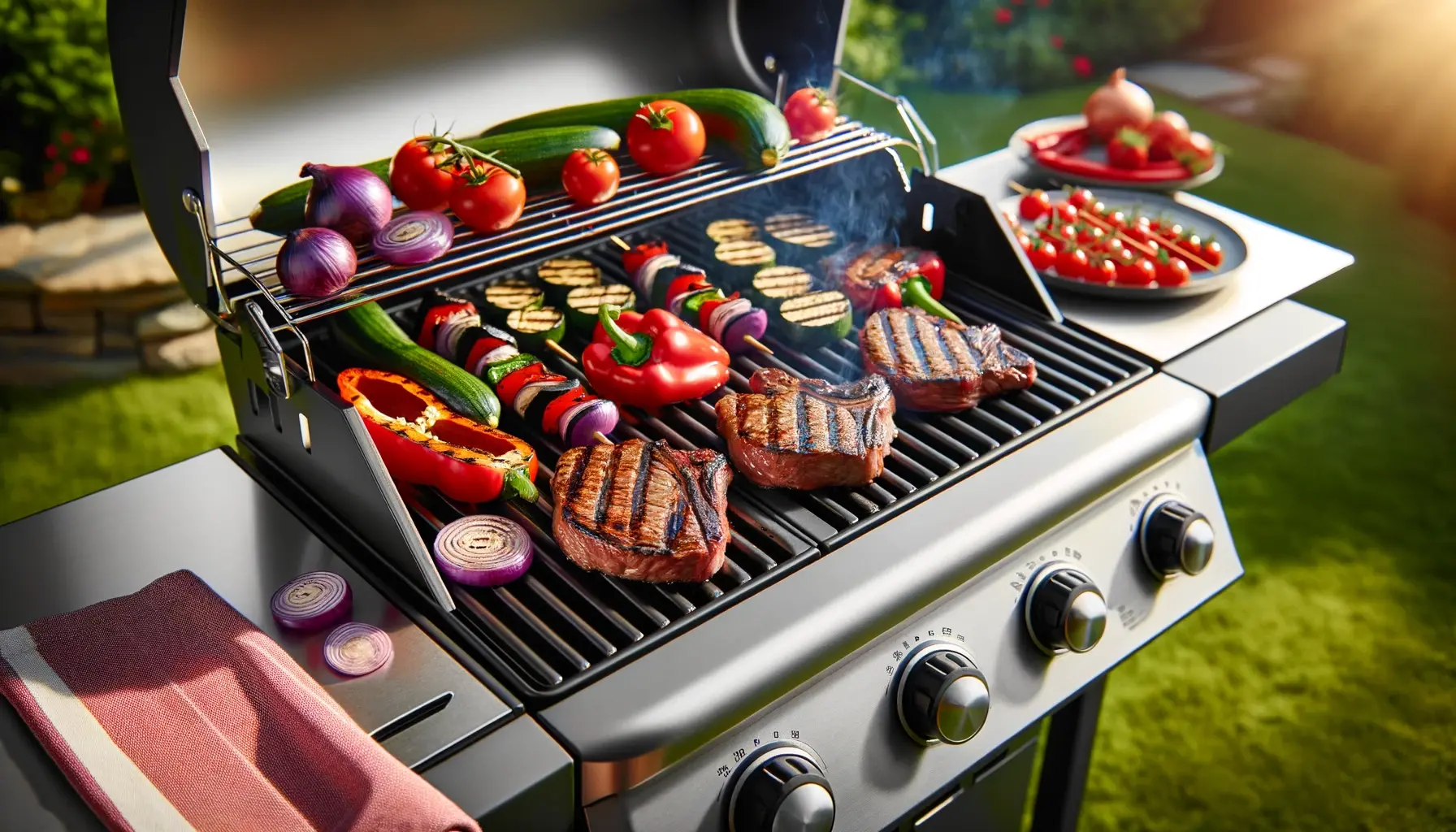Schedule your gas grill maintenance now!
Stay Safe with These 4 Gas Grill Guidelines
Gas grills are a staple of backyard barbecues, providing an easy and convenient way to cook up delicious meals. But to keep the good times rolling, it's crucial to keep safety in mind. Here are some key gas grill safety tips every homeowner should follow.
KEY TAKEAWAYS
- Choose the right location for your gas grill and make sure that it is level and steady.
- Clean and maintain your grill so it works properly and safely.
- Handle propane safely to prevent accidents and keep your family safe.
1. Choose the Right Spot for Your Grill
The location of your grill can make a significant difference when it comes to safety. Here are a few tips for picking the perfect spot:
- Always grill outdoors and away from buildings: Position your gas grill in an open area, ensuring it's not too close to your house, shed, or garage. This reduces the chance of fires and prevents the harmful buildup of carbon monoxide.
- Keep away from flammable materials: Your grill should be at least 10 feet away from things that can catch fire like trees, shrubs, or wooden decks.
- Make sure your grill is well-ventilated: Grills produce carbon monoxide, which can be dangerous in large amounts. Avoid grilling in enclosed areas to prevent gas buildup.
2. Keep Your Grill Steady
Ensuring your grill is secure and stable can prevent accidents. Here's how to ensure your grill is on solid ground:
- Before each use, give your grill a quick check to make sure it's stable. If it wobbles, fix the issue before you start grilling.
- Always place your grill on a flat, level surface. An uneven or sloped area can tip your grill over, causing a hazard.
- Avoid using your grill on grass or gravel, which can be uneven. Instead, opt for a patio or concrete surface for better stability. If you don't have a suitable surface, consider using a grill stand or platform to ensure stability.
By keeping your grill stable, you can grill with peace of mind, knowing that you're keeping yourself and your loved ones safe.
3. Maintain Your Grill
Regular cleaning and maintenance can keep your grill safe and efficient. Here's how to keep your grill in top shape:
- Turn off the gas and let the grill cool before cleaning.
- Remove the grates and scrub them clean. You can use a grill brush or warm soapy water for this task.
- Clean the inside of the grill by scraping off excess grease or food particles.
- Wipe down the outside of the grill with a damp cloth or sponge.
Regular maintenance should also include checking for worn-out parts and replacing them as needed. Components like ignition systems, valves, and hoses can wear down over time, affecting your grill's safety and performance.
Don't forget to inspect and clean the burner tubes and gas lines, which are vital for even heat distribution and a steady gas supply. Disconnect the gas supply and remove the burner tubes. Check for signs of corrosion or blockages and clean them out. Check the gas lines for leaks and replace as needed.
View this DIY video to get additional tips for cleaning and maintaining a gas grill:
By regularly maintaining your grill and replacing worn-out parts, you can ensure your grill is safe and long-lasting. Always follow the manufacturer's instructions for proper maintenance and operation.
4. Handle Propane Safely
Using a gas grill means handling propane, which requires careful attention to safety. Here are some tips to keep in mind:
- Check for propane leaks: Before you start grilling, inspect the gas hose for damage. You can do this by applying soapy water to the hose. If bubbles form, it means there's a leak. Tighten the connections or replace the damaged parts as needed.
- Store propane tanks properly: Always store propane tanks upright in a well-ventilated outdoor area, away from heat or ignition sources. Make sure the tank valve is closed when not in use.
- Connect and disconnect propane tanks safely: When connecting a tank, make sure the valve and grill knobs are off. Follow the manufacturer's instructions to attach the tank securely. When disconnecting, turn off the grill burners first, then the tank valve.
By following these tips, you can grill safely and enjoy your backyard barbecues. If you need gas grill repair or maintenance, schedule service on our Sears Home Services website.
Schedule your gas grill maintenance now!
Keep your gas grill in top shape and operating safely with regular professional maintenance.
Was this information helpful?
Maintain Gas Grill Resources
Explore top gas grill recipes, unique grilling techniques, and must-have accessories to make your July 4th BBQ a hit. Boost your grilling skills and prepare for a celebration to remember!
Learn how to keep your outdoor kitchen appliances in top condition with our comprehensive guide.
Check out our expert advice on using dry rubs when grilling.
If you want the thrill of the grill to last a good long time, follow these maintenance tips from Ed Rzasa, outdoor grill expert at Sears.
